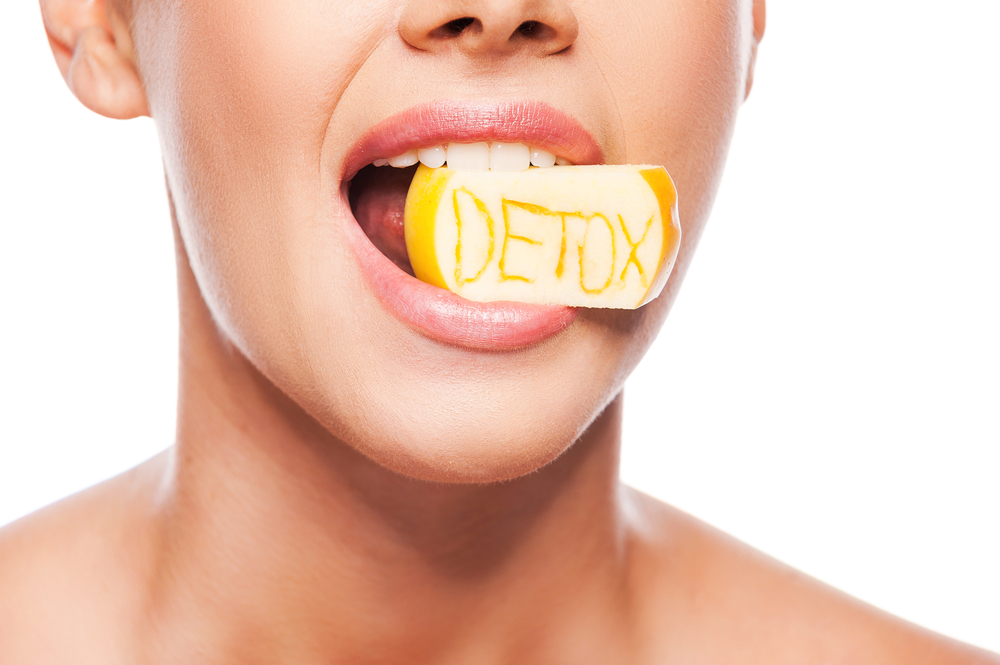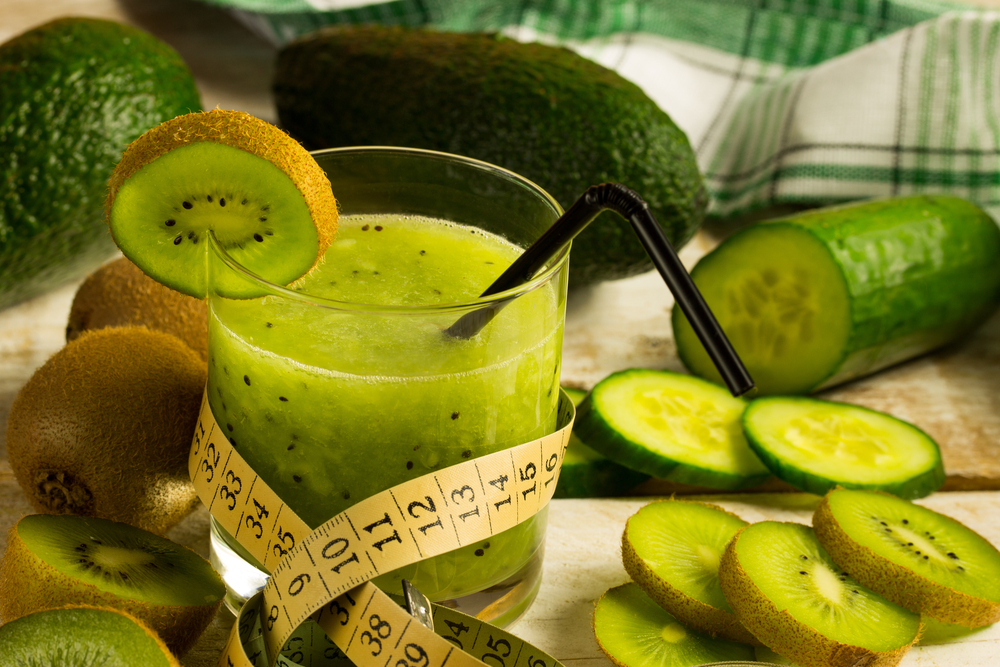Detox diets promise the world: glowing skin, boundless energy, and a new lease on life. But here’s a little secret: they’re often more smoke and mirrors than science. Sure, they sound like the perfect quick fix after a weekend of indulgence, but when you dig a little deeper, the whole concept starts to unravel.
1. The Liver Is The Real Detox Powerhouse

First things first, your liver is basically a detox superhero. This organ is uniquely designed to process and eliminate toxins, making detox diets somewhat redundant. According to the American Liver Foundation, the liver deals with toxins daily without needing a special diet to kick it into gear. So, when influencers promise that a detox drink will “cleanse” your system, they’re essentially undermining the sophisticated work your liver does every day.
In reality, a detox diet is more likely to deprive your liver of the nutrients it needs to function optimally. These diets often involve extreme calorie restriction, which can limit the body’s ability to perform essential functions. Instead of a quick fix, maintaining liver health is all about consistent, healthy eating habits over time. Think less about radical changes and more about supporting your body’s natural processes.
2. The Truth About The Toxin Buildup Narrative

One of the biggest selling points of detox diets is the idea of flushing out accumulated toxins. This narrative hinges on the misconception that our bodies are storing these mysterious “toxins” that need a special regimen to be cleansed. However, science tells us that the human body, when functioning properly, does not allow for such accumulation because of organs like the liver and kidneys that work tirelessly to expel waste.
The myth of toxin buildup can lead people to overly restrictive diets that might do more harm than good. When you cut out major food groups and nutrients in the name of detoxing, you risk causing nutrient deficiencies. Instead of detoxification, focus on a well-rounded, balanced diet rich in fiber, vitamins, and minerals that naturally support detoxification systems. Save your money on fancy detox teas and invest in whole foods instead.
3. The Danger Of Extreme Diets

Extreme detox diets often push diuretics—drinks or supplements that increase urine production—under the guise of cleansing the system. This kind of dehydration can lead to a temporary drop in scale weight, falsely promising success to those desperate for quick results. But what you’re losing isn’t fat or toxins; it’s water and essential electrolytes that are vital for your body’s health.
Beyond just feeling thirsty, dehydration can affect cognitive function, mood, and physical performance as outlined in News Medical. And the supposed cleansing effect? It’s just your body getting rid of water, which isn’t sustainable or healthy. Rehydration—through water and nutrient-rich foods—is what truly helps maintain balance in the body. So swap out those detox teas for a big glass of H2O and a vibrant salad.
4. The Temporary Weight Loss Illusion

Detox diets often promise rapid weight loss, but what they don’t tell you is how short-lived these results can be. When you drastically cut calories or food groups, your body initially sheds water weight, which can be misinterpreted as fat loss. Any quick drop in weight is usually just temporary, and normal eating patterns will likely lead to regaining those pounds.
This yo-yo effect not only affects your physical health but can also mess with your mental well-being. The cycle of losing and regaining weight can be discouraging and lead to unhealthy relationships with food. In place of this seesaw pattern, aim for sustainable changes that promote steady weight loss or maintenance, if that’s your goal. Saying goodbye to extreme dieting opens up room for a balanced approach to eating and wellness.
5. The False Fiber Claims

Detox diets sometimes push fiber supplements, claiming they’ll help sweep out the digestive system. While fiber is crucial for digestion, relying solely on supplements misses the broader benefits of whole foods. Natural sources of fiber, such as fruits, vegetables, and whole grains, provide a range of nutrients that your body needs to function at its best, say the experts at Healthline.
Fiber supplements alone can’t replicate the nutritional complexity offered by whole foods. They may even lead to digestive distress if not incorporated properly into your diet. Whole foods offer not just fiber but also antioxidants, vitamins, and minerals that support overall health. So when it comes to fiber, it’s best to think beyond supplements and broaden your palate with a variety of whole foods.
6. The Misleading ‘Clean’ Tag

The idea of eating ‘clean’ is enticing but highly misleading. Detox diets often label foods as clean or dirty, creating a moralistic approach to eating that can foster guilt and anxiety. This binary thinking ignores the fact that food is more than just fuel; it’s culture, tradition, and pleasure. The clean tag can stigmatize perfectly healthy foods that might not fit into a narrow dietary definition.
Furthermore, detox diets can contribute to disordered eating patterns by promoting these rigid classifications. When people feel they’ve failed to eat clean, they may experience shame and fall into a cycle of restriction and bingeing. Instead, focus on balance and moderation, where all foods can fit into a healthy lifestyle. Understanding that no food is inherently bad can be liberating and promote a more intuitive approach to eating.
7. The Stress Factor

Detox diets can be incredibly stressful, both mentally and physically, as studies published by the National Institute of Health explain. The strict rules and deprivation can lead to anxiety around food choices, making mealtime a source of stress rather than nourishment. This kind of stress actually releases cortisol, a hormone that can contribute to weight gain and other health issues over time.
Stress from detox diets also extends to social situations, where eating becomes a challenge rather than an enjoyment. Declining food or avoiding outings can strain social relationships and lead to isolation. Instead of succumbing to the pressures of detoxing, cultivate a mindset of flexibility and enjoyment around food. It’s this balance that truly supports holistic health and wellness.
8. The Loss Of Muscle Mass

A hidden risk of detox diets is muscle loss due to extreme calorie restriction. When you cut calories drastically, your body may start breaking down muscle tissue for energy, especially if protein intake is inadequate. This loss of muscle mass can slow your metabolism and make it harder to maintain a healthy weight in the long run.
Losing muscle also impacts your strength and physical performance, making daily activities more challenging. To preserve muscle, focus on a balanced diet that includes adequate protein, along with regular strength training exercises. By prioritizing muscle health, you support a metabolism that works for you, not against you. Avoid the muscle mass menace by nourishing your body with the nutrients it truly needs.
9. The Blood Sugar Rollercoaster

Detox diets can cause major fluctuations in blood sugar levels, especially if they’re low in carbs. This can lead to mood swings, fatigue, and cravings, making it difficult to stick with the diet plan. Your brain relies on glucose from carbohydrates as its primary energy source, so cutting them out can leave you feeling mentally foggy and irritable.
In the long term, erratic blood sugar levels can contribute to insulin resistance, increasing the risk of type 2 diabetes. Instead of drastic carb-cutting, aim for steady, complex carbohydrates that provide lasting energy. Whole grains, fruits, and legumes can stabilize blood sugar levels and keep you feeling energized throughout the day. Ditch the rollercoaster and embrace a steady approach to nourishment.
10. The Supplement Scam

Detox diets often promote pricey supplements as essential components of the cleansing process. These products are rarely backed by scientific evidence, and their efficacy is questionable at best. Despite impressive marketing claims, supplements lack the regulatory oversight of pharmaceuticals, leading to potential safety concerns.
Reliance on supplements can distract from building a diet based on whole foods, which naturally provide essential nutrients. Instead of spending money on unproven supplements, invest in a diverse array of fruits, vegetables, and whole grains. It’s these natural sources of nutrition that offer lasting health benefits and support the body’s innate detoxifying powers. Remember, a supplement can’t replace the power of a balanced diet.
11. The Metabolism Myth

Many detox diets claim to boost metabolism, but in reality, they often do the opposite. Extreme calorie restriction can lead to a slowdown in metabolic rate as the body tries to conserve energy. This slowdown can make it harder to maintain weight loss and can lead to weight gain once normal eating resumes.
Understanding metabolism is key: it’s not just about burning calories but also about providing energy for every cell in your body. To support a healthy metabolism, focus on regular meals that include a balance of macronutrients. Engaging in regular physical activity, particularly strength training, further supports metabolic health. Ditch the detox and embrace habits that sustain long-term vigor and vitality.
12. The Gut Health Gamble

Detox diets can disrupt gut health by eliminating fibrous and probiotic-rich foods. A healthy gut is essential for digestion, immunity, and even mental health, so disrupting its balance can have wide-ranging effects. Restrictive diets can lead to a decrease in beneficial bacteria, which play a crucial role in gut health.
To support gut health, focus on a diet rich in diverse, nutrient-dense foods. Fermented foods like yogurt, kimchi, and sauerkraut introduce beneficial bacteria, while whole grains and legumes provide necessary fiber. A diverse diet nourishes your microbiome and supports robust health. Instead of gambling with your gut, nurture it with the variety it craves.
13. The Long-Term Truth

Ultimately, detox diets fail in the long term because they are unsustainable. The rigid rules and restrictions are difficult to maintain and don’t promote lasting lifestyle changes. Success in health and wellness comes from consistency, not from short-lived diet trends.
Instead of seeking a quick fix, focus on gradual, sustainable changes that can be maintained over time. Embrace a balanced approach, allowing room for indulgence without guilt. By building habits that support a holistic lifestyle, you promote a healthier relationship with food and your body. Say goodbye to the detox trap and hello to long-term wellness.
Natasha is a seasoned lifestyle journalist and editor based in New York City. Originally from Sydney, during a stellar two-decade career, she has reported on the latest lifestyle news and trends for major media brands including Elle and Grazia.


